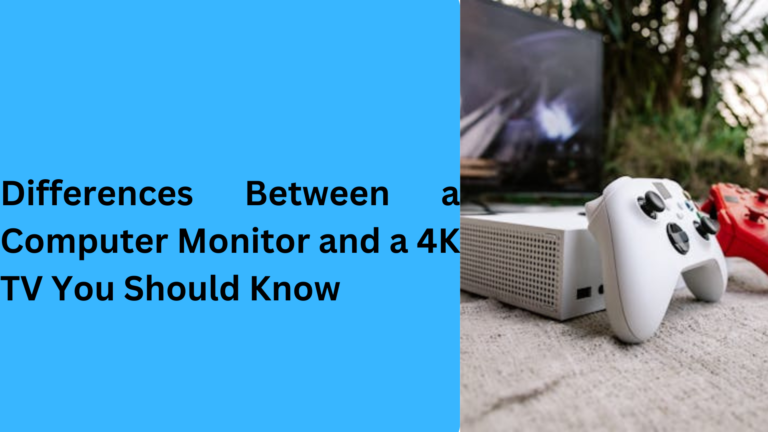10 Popular Differences Between EKG vs Holter Monitor: What You Need to Know
When it comes to understanding heart health, two of the most commonly used diagnostic tools are the EKG (Electrocardiogram) and Holter monitor. Both of these devices help doctors monitor heart activity, but they are used in different ways and serve distinct purposes. If you’re wondering about the key differences between EKG and Holter monitor, this article will guide you through the important factors you should know.
1. Purpose of EKG vs Holter Monitor in Heart Health Monitoring
An EKG is a simple and quick test that records the electrical activity of your heart at a single point in time. It is typically used for diagnosing heart problems like arrhythmias, heart attacks, and other heart diseases. On the other hand, a Holter monitor is a portable device that continuously records the electrical activity of your heart over a period of 24 to 48 hours, providing a more detailed and long-term view of heart rhythm.
If you’re experiencing irregular heartbeats or unexplained symptoms like dizziness, your doctor might recommend an EKG vs Holter monitor based on how long your symptoms last. The Holter monitor offers a better look at intermittent or less frequent symptoms.
2. Duration and Frequency: How Long Do They Record Heart Activity?
An EKG test is typically done during a short visit to your doctor’s office, often lasting just a few minutes. It’s perfect for capturing immediate heart problems like a heart attack or an arrhythmia that is present at the time of the test. In contrast, the Holter monitor is worn for an extended period, often for 24-48 hours, and is ideal for catching heart issues that don’t show up in a single moment. It allows doctors to evaluate heart rate variability, arrhythmic patterns, and irregular heartbeats over a longer period.
3. How They Work: Electrodes vs Portable Monitoring Device
An EKG involves placing electrodes on your chest, arms, and legs to detect electrical signals from your heart. It is a quick and non-invasive test that doesn’t require you to do anything special. The Holter monitor, however, is a small, wearable device that is attached to your body with electrodes. Unlike the EKG, you can go about your normal daily activities while wearing a Holter monitor. It tracks your heart’s rhythm and activity during exercise, sleep, or any other daily routine.
Both devices rely on electrodes for heart monitoring, but the Holter monitor gives doctors a much broader view of how your heart behaves throughout the day and night.
4. What Conditions Can EKG vs Holter Monitor Diagnose?
An EKG is perfect for diagnosing acute conditions like heart attacks, arrhythmias, and electrical disturbances in the heart that occur suddenly. If you are experiencing chest pain or a sudden arrhythmia, an EKG provides immediate results.
In comparison, a Holter monitor is used to track more chronic or intermittent heart issues that don’t always show up in an EKG. It can diagnose sleep apnea-related arrhythmias, unexplained fainting, and long-term heart rhythm abnormalities. It is particularly helpful in identifying issues that might not happen during a one-time test.
5. Comfort and Convenience: EKG vs Holter Monitor Experience
The EKG procedure is quick and relatively comfortable. You just lie down while the electrodes are placed on your body, and within minutes, the test is completed. The Holter monitor, however, requires you to wear the device for a longer period, which may feel more cumbersome at first. The device is about the size of a small phone and is worn around your neck or on a strap around your waist. You’ll also need to avoid activities like bathing or swimming, as water can damage the device.
For people looking for a non-invasive, short-term test, the EKG test is convenient. For those needing long-term heart monitoring or experiencing symptoms that don’t show up during a brief check-up, the Holter monitor offers greater insight.
6. Accuracy and Sensitivity: Which Test Provides Better Insight?
When comparing the accuracy of EKG vs Holter monitor, both devices have their strengths. An EKG is excellent for detecting immediate abnormalities or sudden heart attacks because it records your heart’s electrical activity at that precise moment. However, it may miss intermittent heart issues that only occur sporadically.
A Holter monitor, on the other hand, offers greater sensitivity to subtle and long-term changes in heart rhythm, such as silent arrhythmias or sporadic heart palpitations that might not occur during a short EKG test. The Holter monitor‘s ability to provide continuous heart monitoring over 24 to 48 hours makes it ideal for catching low-frequency heart problems that don’t always show up in a brief snapshot.
7. Cost and Insurance Coverage: What You Need to Know
In terms of cost, an EKG is typically less expensive than a Holter monitor, primarily because it is a shorter, one-time test. It is generally covered by most health insurance plans, especially if it’s used for diagnosing acute conditions such as chest pain or heart attack symptoms.
The Holter monitor is more costly due to the extended monitoring period and the need for the portable device. However, many insurance plans do cover Holter monitoring if it’s deemed medically necessary. Always check with your insurance provider to confirm the coverage details for both tests. Your doctor may also guide you on how to access these tests through your healthcare network.
8. Preparation and Aftercare: What to Expect Before and After Testing
Before undergoing an EKG, there’s usually no special preparation required. You may be asked to remove your clothes from the waist up, and the technician will place the electrodes on your chest. The test is painless and involves minimal effort on your part.
With a Holter monitor, the preparation is slightly more involved. You will be given instructions on how to wear the monitor and may be asked to keep a symptom diary during the test to help your doctor correlate heart activity with any symptoms you experience. After the test, you will return the monitor to your healthcare provider, and they will analyze the data.
Both tests have minimal risks, though with the Holter monitor, you may experience some skin irritation from the electrodes if worn for a long time. Additionally, while wearing a Holter monitor, you must avoid activities that could damage the device, such as bathing or excessive sweating.
9. Lifestyle and Daily Activity: How Each Test Affects Your Routine
One of the significant differences between an EKG vs Holter monitor is how they impact your daily life. An EKG is performed in a medical office and doesn’t require any major changes to your routine. You can go back to your normal activities immediately after the test.
However, a Holter monitor requires you to wear the device continuously for 24 to 48 hours, which means it can affect your daily activities. You’ll need to keep the device on throughout the day, and you’ll be asked to avoid activities like taking showers, swimming, or exercising too intensely. The Holter monitor allows you to live normally while being monitored, providing an accurate representation of how your heart behaves during various daily activities.
10. Effectiveness in Detecting Specific Heart Conditions
Both the EKG and Holter monitor are effective for diagnosing specific heart conditions, but they excel in different areas. An EKG is highly effective for detecting acute conditions like heart attacks, immediate arrhythmias, and electrical disturbances. If you are seeking quick results for sudden symptoms, an EKG is the preferred choice.
A Holter monitor is better for detecting chronic conditions that occur intermittently or during specific activities. It is often used to diagnose long-term heart rhythm issues such as tachycardia, bradycardia, or postural orthostatic tachycardia syndrome (POTS). If your doctor suspects a chronic heart issue that might not appear during a quick test, the Holter monitor provides the best continuous monitoring for these types of conditions.
By understanding the differences between EKG and Holter monitor, you can better prepare for your heart health journey and work with your doctor to make an informed decision based on your needs. Both devices are crucial in identifying and treating heart conditions, and knowing when to use each one can help you manage your heart health more effectively.
1. What is the main difference between an EKG and a Holter monitor for diagnosing heart conditions?
The main difference between EKG and Holter monitor lies in the duration of monitoring. An EKG (Electrocardiogram) records your heart’s electrical activity at a specific moment in time, usually during a short visit to your doctor. This is ideal for diagnosing acute heart conditions such as heart attacks or immediate arrhythmias. On the other hand, a Holter monitor is worn for 24 to 48 hours to continuously track your heart’s activity, making it more effective for diagnosing intermittent heart problems like irregular heartbeats that occur over a longer period.
2. How long does a Holter monitor stay on and what does it monitor that an EKG cannot?
A Holter monitor is typically worn for 24 to 48 hours and provides continuous heart activity monitoring. Unlike the EKG, which captures a snapshot of your heart’s rhythm, a Holter monitor records the electrical activity of your heart during daily activities such as sleep, exercise, and stressful situations. This makes it more effective for detecting intermittent arrhythmias, silent heart conditions, and long-term rhythm disturbances that may not be noticeable during a short EKG test.
3. Is a Holter monitor test more accurate than an EKG for detecting heart problems?
The accuracy of a Holter monitor vs EKG depends on the type of heart issue being investigated. An EKG is highly accurate for diagnosing acute heart problems like heart attacks or immediate arrhythmias because it captures the heart’s activity at a specific moment. However, a Holter monitor is superior for detecting long-term or intermittent heart conditions like tachycardia, bradycardia, or sporadic arrhythmias, which may not appear during a brief EKG test. Therefore, both tests are effective in different situations.
4. Can you exercise or take a shower while wearing a Holter monitor?
While wearing a Holter monitor, you should avoid certain activities to ensure the device functions correctly. You can continue with most daily activities, but you should avoid bathing, swimming, or engaging in activities that could cause the device to get wet. Exercise is generally allowed, but you should avoid overly strenuous activities that may cause discomfort or interfere with the device. The Holter monitor is designed to track your heart’s activity during normal, everyday movements, so keeping it dry and intact is crucial for accurate readings.
5. How is the data from a Holter monitor analyzed compared to an EKG test?
Data from an EKG test is reviewed immediately after the procedure and provides quick results, often in just a few minutes. The results help doctors diagnose immediate heart conditions like heart attacks or arrhythmias. In contrast, the data from a Holter monitor is collected over 24 to 48 hours and requires a more thorough analysis by a healthcare provider. The continuous recording of heart activity during daily life gives doctors more insight into intermittent arrhythmias, postural issues, and long-term heart health, making it ideal for detecting problems that may not be present during a one-time EKG test.


